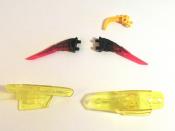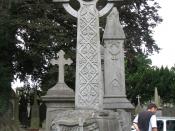Part 1: The Introduction
The first command exposure most United States Army lieutenants have come via their ROTC (Reserve Officer Training Corps) experiences during their college years. During these studies of Military Leadership, Military Tactics, and Military Science, they will be charged with reading selected books that will expand their knowledge of the career field they have chosen post-university. One book that tends to make just about every 'Professional Reading List' from anyone who mentors the up-and-coming commander is John Keegan's The Mask of Command.
Through The Mask of Command, John Keegan employs sketches of individual generals to illustrate several broad styles of leadership: heroic (Alexander), anti-hero (Wellington), unheroic (Grant), false heroic (Hitler) and finally, he offers a challenge to the present day commanders to fill the role of the post-heroic. He further outlines the characteristics of these leadership styles by comparing them not only to each other but to the individual societies and methods of warfare that his specific leaders found themselves in.
Keegan's main theme, however, appeared not to be the actual differences in the leadership styles themselves but an establishment of the criteria for rounding out the heroic-leadership types. Upon stating his prerequisites for each type, he subsequently presents his central argument: that styles of leadership have necessarily evolved reflecting, and in response to, changes in the broader society.
As Keegan presents his arguments, however, it must be realized that portions of his facts are misrepresented in order to fit into his nicely divided 'shades' of heroics. Through ill-thought out representation of his chosen specimens, Keegan insisted on providing full-blown attention to the characteristics he felt justified his opinion, but was entirely too generalized once he approached a leadership trait of his example that entirely falsified his assignment of heroic degrees. Because this book...


